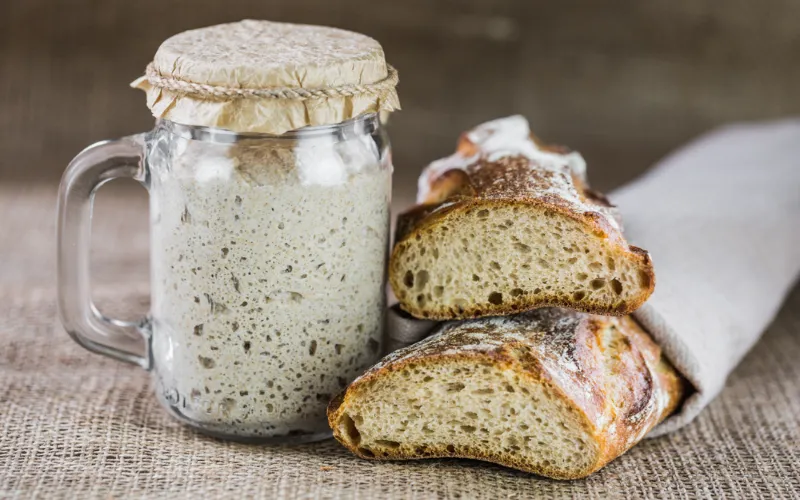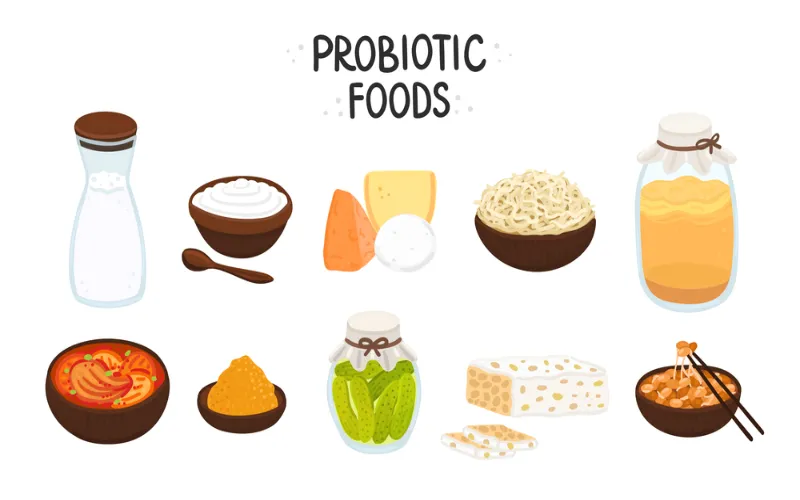The human gut, a sprawling ecosystem of bacteria and microorganisms, is a marvel of nature. With a growing body of research indicating its importance in overall health, the emphasis on maintaining a balanced gut has never been more pronounced. Central to this balance is the role of probiotics – vital players in fostering a harmonious gut environment.
Understanding Probiotics
Probiotics are live bacteria and yeasts that confer multiple health benefits, especially for the digestive system. They’re not harmful; instead, they help the body counteract the adverse effects of bad bacteria. Then, there’s the topic of prebiotics and synbiotics.
- Prebiotics are compounds in food that induce the growth of beneficial microorganisms.
- Synbiotics blend both, ensuring that the gut receives a wholesome dose of healthful elements.
The Science Behind Probiotics
These tiny wonders have an incredible influence on gut health. By restoring the natural balance of bacteria in the gut, they reduce the risk of digestive disturbances. Moreover, probiotics have an intimate relationship with our immune system, fortifying our defenses and shielding us from many ailments.
Why Natural Sources Over Supplements?
While supplements have become a popular conduit for ingesting probiotics, natural foods remain the gold standard. Foods like yogurt and sauerkraut have a complex nutritional profile that supplements often cannot match. Moreover, certain probiotic supplements might not survive the journey to the gut, making natural sources more reliable.
Yogurt: A Dairy Delight
A staple in many diets, yogurt stands tall as a probiotic powerhouse. The fermentation process, spearheaded by lactic acid bacteria, makes yogurt a haven for probiotics. Opting for yogurt brands with live cultures is a prudent choice for those keen on maximizing benefits.
Fermented Vegetables: Beyond Just Taste
Venture into fermented vegetables, and you’ll encounter sauerkraut, a probiotic-rich treat made from fermented cabbage. Not far behind is kimchi, a spicy Korean dish that couples the benefits of fermentation with a burst of flavors, ensuring gut health and tantalized taste buds.
Kefir: The Creamy Probiotic Punch
Kefir, a fermented milk drink, is yogurt’s tangy cousin. While they might share a dairy lineage, kefir boasts a broader spectrum of bacteria, making it a must-have for probiotic enthusiasts.
Traditional Miso and Tempeh
Both hailing from Japanese cuisine, miso, and tempeh are stellar probiotic sources. Miso, a savory paste, often finds its way into soups, while tempeh, made from fermented soybeans, is a protein-rich addition to many dishes.
Pickles: Not Just for Sandwiches
Beyond their crunchy delight, pickles (the fermented kind, not those made with vinegar) are teeming with probiotics. So, remember the probiotic goodness between the slices the next time you relish a sandwich.
Sour Power: The Benefits of Sourdough Bread
With its characteristic tang, sourdough bread owes its flavor to the unique fermentation process. This process endows it with taste and contributes to digestive well-being.

Probiotic Beverages
Kombucha, a fermented tea, has rapidly ascended the ranks of popular health drinks. Its enthusiasm, coupled with its probiotic content, makes it both refreshing and nutritious. Similarly, fermented milk drinks, rich in lactic acid bacteria, are beneficial.
Cheese Varieties Rich in Probiotics
Not all cheeses are created equal. Aged varieties like cheddar and gouda teem with probiotics, making them tasty and a boon for gut health.
Potential Allergies and Considerations
While the probiotic journey is beneficial, it’s essential to tread with caution. Recognizing potential intolerances and allergies is paramount. Always remember to introduce new foods gradually to discern how the body reacts.
Storing Probiotic-rich Foods
Store them correctly to ensure you derive maximum potency from your probiotic-rich foods. A cool, dark place suffices for most but always check storage guidelines. Avoiding excessive heat and moisture will keep the beneficial bacteria thriving.
The Lesser-Known Probiotic Treasures
These are as follows:
- Natto
- Olives
- Avocado
- Apple Cider Vinegar
- Ginger
- Garlic and Turmeric
- Green Tea
- Dark chocolate
- Honey
- Fruits for the Gut
Natto: A Sticky Affair
This Japanese dish, comprised of fermented soybeans, stands out for its unique texture, taste, and stellar probiotic content. Additionally, natto is a rich source of vitamins and minerals that complement its gut-friendly attributes.
Olives: The Mediterranean Marvel
Olives, especially those fermented in brine, not only grace our dishes with a unique taste but also introduce beneficial bacteria into our diet. They’re a staple in Mediterranean cuisine, known for their health and longevity benefits.
Avocado: The Creamy Catalyst
While avocados are not traditionally recognized for their probiotic content, their prebiotic fibers create a conducive environment for beneficial bacteria to thrive. Coupled with its rich array of nutrients, avocados are a true superfood for gut health.
Apple Cider Vinegar: A Tangy Tonic
With its raw and unfiltered form, Apple cider vinegar hosts a community of beneficial bacteria. Its acidic nature also promotes a healthy digestive tract, making it a two-fold champion for gut health.
Ginger: The Root of Wellness
Ginger, renowned for its anti-inflammatory properties, aids digestion and can help the proliferation of good bacteria in the gut. Its warm, spicy flavor enhances dishes while ensuring your digestive system remains tip-top.
Garlic and Turmeric: The Dynamic Duo
Both garlic and turmeric are packed with health benefits. While garlic acts as a potent prebiotic, fostering the growth of beneficial bacteria, turmeric, with its active compound curcumin, offers anti-inflammatory benefits, assisting in maintaining a balanced gut.
Green Tea: A Brew for the Belly
Green tea, with its antioxidants and polyphenols, isn’t just for relaxation. It facilitates the growth of good bacteria and restricts harmful ones, striking a harmonious balance in the digestive system.
Dark Chocolate: A Sweet Surprise
Rejoice, chocolate lovers! Rich in flavonoids, dark chocolate provides prebiotic fibers that feed the beneficial bacteria. Paired with its mood-enhancing properties, it’s a treat for the gut and the soul.
Honey: Nature’s Liquid Gold
Raw honey, with its antimicrobial properties, can help combat harmful bacteria. Moreover, it acts as a prebiotic, ensuring a nurturing space for good bacteria to flourish.
Fruits for the Gut: Bananas, Oranges, Strawberries, Blueberries, and Raspberries
Fruits are nature’s candy, but their benefits extend beyond satiating sweet cravings. Bananas are rich in prebiotic fibers, ensuring a happy gut. Oranges, strawberries, blueberries, and raspberries, laden with fiber, antioxidants, and vitamins, collectively work towards a healthy digestive environment, proving that nature truly offers remedies in the most delightful forms.
Conclusion
In the panorama of nutrition, probiotics have carved a niche. A diet punctuated with these foods promises gut health and other benefits. As our understanding of these microscopic marvels deepens, it’s clear: embracing them is not just a dietary choice; it’s a lifestyle one. Embark on this journey, and let every meal be a step towards impeccable health.
Does every type of dark chocolate contain probiotics?
Not necessarily. Look for high-quality dark chocolate with a high cocoa content, as these tend to have beneficial prebiotics.
Are the probiotics in apple cider vinegar the same as those in yogurt?
No, the strains might differ. Apple cider vinegar hosts specific beneficial bacteria due to its unique fermentation process.
Why is natto considered a good probiotic food?
Natto undergoes fermentation, which introduces beneficial bacteria. Additionally, it’s rich in vitamins and minerals.




